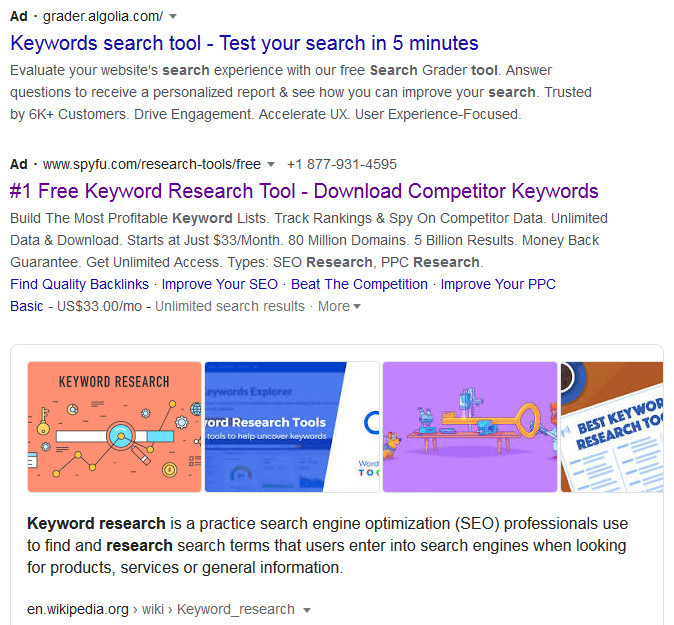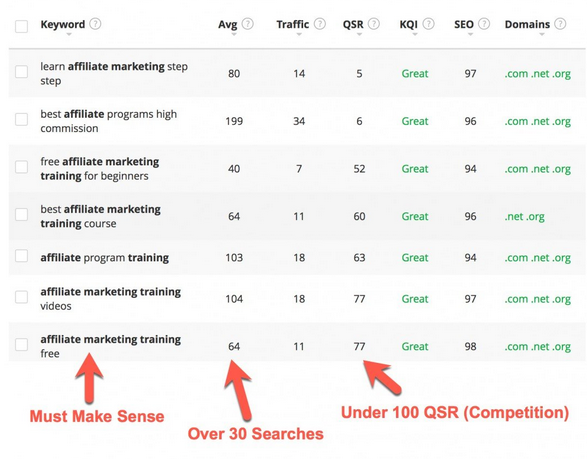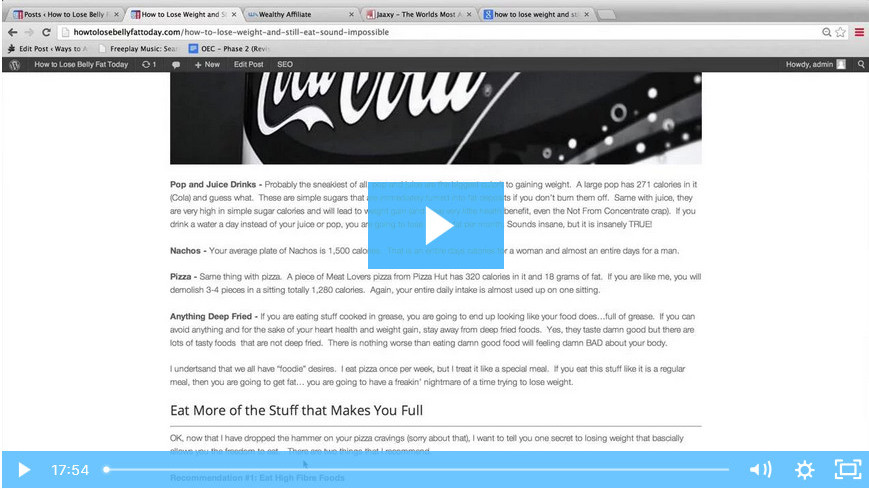If you ever want to appear on the first page of Google or Bing, you need to pick the right keywords to give you the best chance, and to do this, you need a good keyword research tool. What is a keyword research tool? It is one piece of software that can make or break where your content ranks.
This site includes affiliate links – if you buy through my link I may get paid a commission but the price remains the same for you. Thank you for your support.
Before going more in-depth on the actual tool, let’s first of all look at:
Table of Contents
What is a keyword?
Just to be clear, a keyword is simply a search term. For example, in the search box in the image below, the keyword is ‘what is a keyword research tool’. It doesn’t matter that it’s several words, it’s still referred to as a keyword.

Google’s aim is to then provide me with the most relevant search results (see below).

You can see here that the top 2 results are for paid ads and then you have Wikipedia which ranks highly for most things as the posts are so detailed and contain links to many sources of information.
Why is keyword research important?
So, you have a great idea for your content. Maybe you have just got started in the world of affiliate marketing and are naturally excited about getting your content in front of any many people as possible. Can’t you just write a piece and not worry about keywords?
In actual fact, yes you can, and when you are just setting out on your journey, sometimes it is just good to write a piece that comes from the heart and will talk to your audience.
However, to give your audience the best chance of finding your useful post, it is best to give some thought to what they are likely to be searching for.
Responding to a problem in your posts is absolutely the right way to go – offering value first before ever trying to sell something will build trust and stand you in good stead for building a following.
So think about how your audience will research their problem on Google (or Bing for that matter). Whatever terms you can imagine them putting into a search engine, they are your potential keywords.
Is it possible to do keyword research without a research tool?
To a degree, yes you can. For example, if you type a word into Google, it will come up with suggestions for you. These will typically be keywords that are popular right now.
The trouble with that, however, is that depending on the competition, you may have no chance of ranking for those keywords. This is how a keyword tool can help you have a fighting chance, even in competitive markets.
Is it possible to rank for popular keywords?
Depending on your niche, you may find that the terms your prospective followers are looking for are super-competitive, however, if you do your research carefully, there are always ways to find good keywords.
What you are really after here is the ‘low hanging fruit’. In other words, terms that have a reasonable amount of search volume along with low competition.
Every time I set out with a content idea and start researching, I am sure it will be really difficult – and every time I end up finding something that perfectly describes by post AND has all the key metrics that make up a great keyword.
I should be learning by now that there is always a way!

What are the metrics I have to consider?
Monthly searches – If no one is looking for the keywords you are considering then keep searching. It doesn’t have to be a huge number, especially when your website is new. If there are fewer searches it is quite likely that there is little competition.
Also, as you build out your website your keywords will have a cumulative effect and traffic will build up over time.
Keyword Quality Index (KQI) – This gives you an up-to-date picture of a keyword whether it is for straightforward SEO (as in for your blog post) or for a paid campaign.
Competition – Low competition is what you are looking for. When you are starting out, you want a ‘QSR’ of under 100. ‘QSR’ is Quoted Search Results’ and is essentially the number of competing websites using that keyword.
When your website is a little more established you can go up to under 200 then under 300 QSR and so on.
I use a keyword tool called Jaaxy. You can see below why I was excited about finding the keyword ‘what is a keyword research tool’!
Why not have a go yourself! Enter the keyword that would make sense for a piece of content you are considering and see what results come up.
You are looking for a minimum of 30 search results, ideally under 100 QSR and most importantly, your keyword has to make sense!
Occasionally you see a good search term but if you can’t make sense out of it and be able to use it naturally in your post, look for something better.
What other factors will affect my ranking?
It would be amazing if your keyword research alone meant that you could rank on the first page on Google but if your site is new, unfortunately, that will take some time.
It will generally take 6 months to start getting traffic to your website. When you start out, Google does not assign any authority to your site and you need to build this over time by linking to other posts on your own website which you can do as you add more and more posts.
Also, Google takes backlinks from other sites into account so as your site progresses, look for relevant sites that you can submit content to or share backlinks with.
Do you prefer to learn on video?
I am a member of a training platform and community where the training is in both written and video format (plus live webinars to keep us all up to date on relevant topics).
If you click the link below, you will find the information I have shared here and more from Kyle, one of the founders of the platform. To see the video just click the image below. (You can also check out my review of Wealthy Affiliate right here.)
Conclusion
Keyword research sounds like a dry old process but it’s actually really fun, especially when you discover a great keyword! The key (excuse the pun) is to know that you are laying the foundations of your site and the work you are doing now will compound over time.
In the years to come you will be reaping the rewards of your efforts, so do this task well.
What has your experience been with keywords? Do you love finding good ones or find it a bit of a challenge? I would love to hear about it in the comments.


